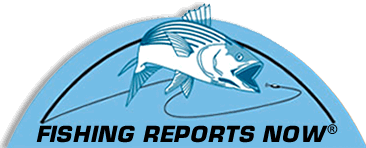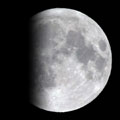Tog Fishing Moratorium
Starting April 1
Editor's Note: The below press release from NOAA Fisheries Service announces a New Jersey tautog fishing moratorium effective April 1.
However, Tom Fote from the Jersey Coast Anglers Association e-mailed copies of two letters from the NOAA Fisheries Service acting assistant administrator that say that New Jersey is being notified that the moratorium will only take effect if New Jersey does not enact legislation by April 1 to cut the state's tog catches by about 26 percent over the 2003 to 2005 average.
One letter is to the governor, and the other is to the Atlantic States Marine Fisheries Commission (both are pdf files).
From the National Oceanic Atmospheric Administration Fisheries Service:
FOR IMMEDIATE RELEASE
March 11, 2008
NOAA to Close New Jersey Tautog Fishery April 1
NOAA’s Fisheries Service found that the State of New Jersey has failed to implement measures necessary to fulfill its responsibilities under the tautog interstate fishery management plan and which are crucial for conservation of the salt water fish. As a result, NOAA will close New Jersey’s commercial and recreational fishery for tautog on April 1.
Tautog is a popular recreational species whose stock is overfished. Landings data indicate that New Jersey’s harvest is significant compared with that of other states, and that its recreational landings more than tripled in 2006. Accordingly, its failure to implement management measures will undermine the interstate conservation plan for the species.
Under the rebuilding plan, each of the Northeastern states are required to reduce tautog fishing effort by about 26 percent over 2003 to 2005 average levels. On February 7, the Atlantic States Marine Fisheries Commission determined that New Jersey had not taken such measures as required by the fishery management plan.
Under the Atlantic Coastal Act, NOAA’s Fisheries Service was obliged to conduct a review and make a decision within 30 days as to whether it concurred with the Commission’s findings, and whether the mandated measures are necessary for the conservation of the tautog resource.
April 1 was selected for the closure date because it provides significant conservation benefits while allowing enough time to ensure that anglers, commercial fishermen and dealers are aware of the effective closure date.
The most recent landings data from 2006 find New Jersey recreational anglers landed about 700,000 pounds of tautog, and commercial fishermen about 70,000 pounds. In 2006, Northeast fishermen landed about 4.3 million pounds of tautog, most of which was taken by recreational anglers.
Tautog is managed within the framework of the Atlantic States Marine Fisheries
Commission. This Commission, comprising representatives from the Atlantic coastal states, develops fishery conservation and management strategies for certain coastal species and coordinates state efforts to achieve those objectives.
NOAA’s Fisheries Service is dedicated to protecting and preserving our nation’s living marine resources and their habitat through scientific research, management and enforcement. NOAA Fisheries Service provides effective stewardship of these resources for the benefit of the nation, supporting coastal communities that depend upon them, and helping to provide safe and
healthy seafood to consumers and recreational opportunities for the American public.
The National Oceanic and Atmospheric Administration, an agency of the U.S.
Commerce Department, is dedicated to enhancing economic security and national safety through the prediction and research of weather and climate-related events and information service delivery for transportation, and by providing environmental stewardship of our nation's coastal and marine resources. Through the emerging Global Earth Observation System of
Systems (GEOSS), NOAA is working with its federal partners, more than 70 countries and the European Commission to develop a global monitoring network that is as integrated as the planet
it observes, predicts and protects.





